While the African Union Summit of Heads of States is around the corner, Senegal has recently hosted the second edition of Dakar Financing Summit for African Infrastructure Development in the presence of Prime Minister Moustafa Madbouli, the presidents of Rwanda and Senegal along with the African Union chair. The two-day summit delved deep into the continent’s potential and demands, shedding light on 20 major projects in energy, water and ICT sectors.
The first Dakar Financing Summit was in 2014. This year’s summit is to highlight the ongoing paradigm shift in infrastructure financing and development in Africa. The inaugural Summit called for a paradigm shift in the way the resources of the continent are used. The Programme for Infrastructure Development in Africa (PIDA) seeks to enhance continental integration through promoting cross-border infrastructure.
To date out of 400 projects from PIDA-PAP1, 176 operational and 78 are under construction. Around 23 projects are in the tendering stage.
The remaining projects are on their way to banking bankability. While PIDA-PAP1 showed good results, hopes are pinned on Dakar Summit to mobilise the funds required for the implementation of PIDA-PAP2.
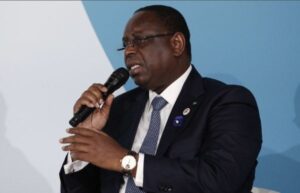
In the opening session, the Senegalese President Mackey Sall thanked the Egyptian President
Abdel Fattah El Sisi for sending a high level delegation to the summit that is very important as 600 million people lack electricity.
The Senegalese President pointed out that PIDA seeks to develop the cross border Infrastructure in sectors of water, energy and ICT.
“In2014, first summit on PIDA was held with the aim of enhancing Investing in infrastructure. Progress is real and challenges are real as well,” he noted.
The Senegalese President also highlighted the challenges including the effects of Covid-19 and challenges. According to the recent annual report of Infrastructure Consortium for Africa, 81 billion dollars invested in infrastructure in 2021 compared to 100 billion dollars in 2018. “That is why serious discussions with our partners are required,” he stressed.
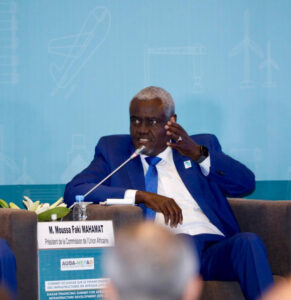
Mousse Faki, the Chairperson of the African Union Commission, stressed that infrastructure is the very basis for continental integration.
Faki went on to say that AU will help in terms of policies, innovative tools and reducing obstacles.
“Heads of states will help us realise these projects,” he noted.
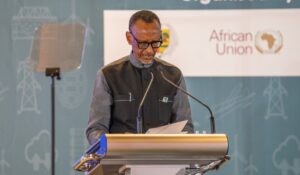
For his part, Rwandan President Paul Kagame said that under the second PIDA Priority Action Plan, AUDA-NEPAD assists member countries in faster tracking projects with high social impact.” Over the years, good progress has been made. No doubt about that. But Africa’s infrastructure gap remains significant.”
To close this gap, the Rwandan President stressed the paramount importance of mobilising domestic resources. That’s why, in 2017, AUDA-NEPAD launched the 5% agenda on increasing institutional investment in Africa’s infrastructure.
“The summit is an opportunity to add to this funding mix by partnering with the private sector to make our infrastructure projects even more bankable. Having inclusive, reliable and sustainable infrastructure is not an end in itself. For Africa, it means reducing the cost of doing business, boosting regional trade and becoming more resilient against future shocks,” he noted.
President Kagame went on to say that infrastructure is a means to create prosperity and opportunity for people. Building Africa’s infrastructure requires us to work closely together both as governments and with the private sector, he added.
“In fact, this also helps to operationalise with full capacity the African continental free trade area . It is part of our wider version as outlined in agenda 2063 to build a more secure and prosperous Africa for all of us. Let us seize the momentum to make faster progress towards our shared goals. We cannot be satisfied without business as usual.”
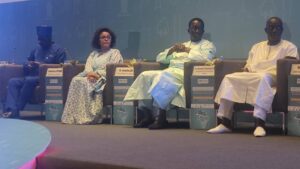
According to NEPAD CEO Nardos Bekeley-Thomas stressed that Africa cannot achieve integration, growth, trade, development, peace and security without infrastructure.
“Over the last decade we have witnessed the adverse impact of poor infrastructure on Africa’s potential. As a continent ,we had to reduce energy costs and more importantly, increase access to electricity. Despite our best efforts, it’s disheartening to note that more than 600 million Africans remain in the dark.”
At a national level countries like South Africa are facing an energy crisis with the intensity of power power cuts,she noted.
“It is time for Africa to unshackle ourselves and build bridges that connect us. we need to have control of our data. And if we don’t we cannot control our future. The ICT is a critical enabler for development. It is high time that the continent adapts the best practices of the global infrastructure financing landscape.”
The official also clarified that This summit will provide guidance on how Africa can resolve the challenges besides recommending concrete actions on the priorities of the summit.
The priorities of the summit are increasing and securing the necessary funding for project preparation and matching financing needs to the existing sources of financing.
“We need to increase our efforts to words mobilising more domestic resources .We may or may not be able to change our history or our geography but we can certainly change our future. We are all counting on you.”



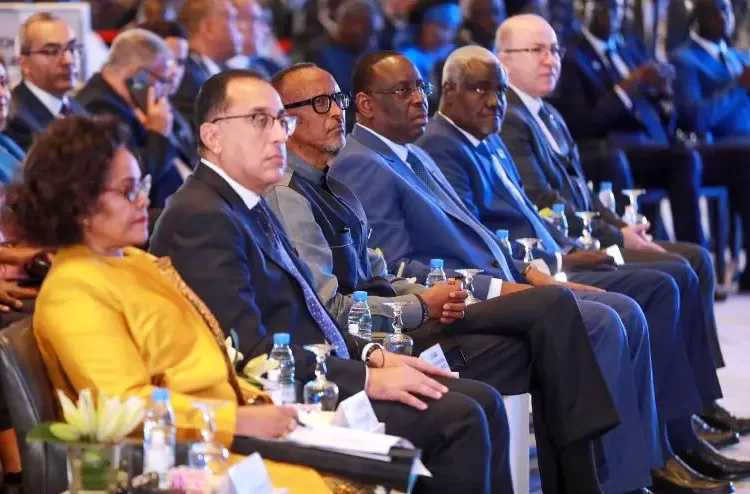


Discussion about this post